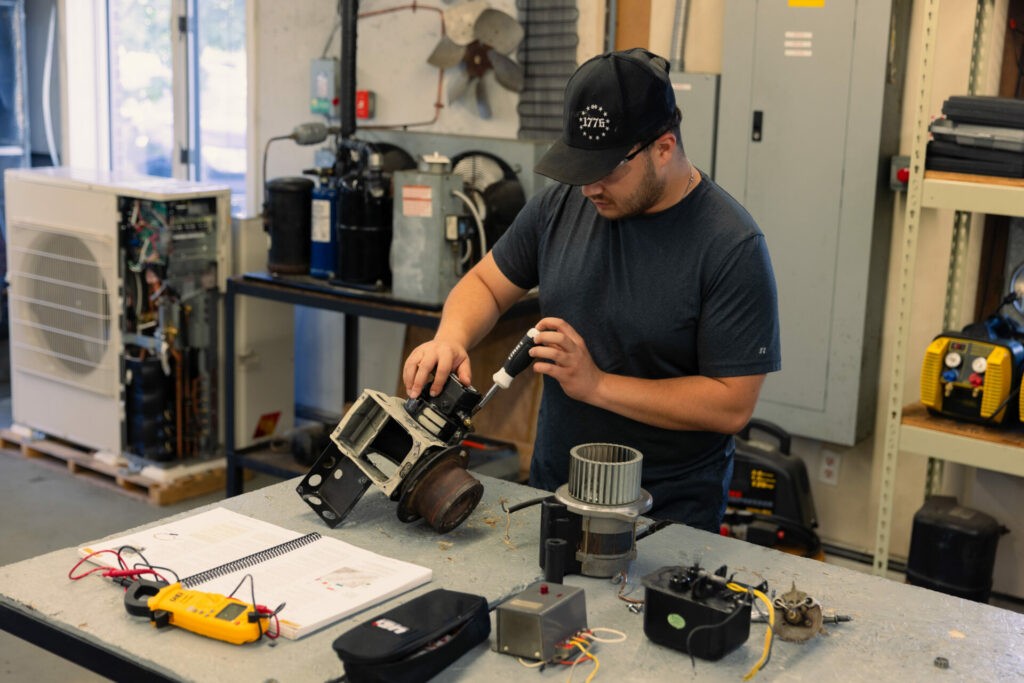
Returning to trade school after a long break from education can be both exciting and daunting. Whether you are looking to upgrade your skills, change careers, or simply pursue your passion, going back to school is a significant step towards achieving your goals. However, it’s natural to have questions and concerns about the process. In this article, we will provide you with valuable tips and guidance to help ease your transition back to trade school. From setting clear goals to managing your time effectively, we’ve got you covered. Let’s dive in!
Set Clear Goals
The first step in returning to trade school is to set clear goals for yourself. Take some time to reflect on why you want to pursue further education and what you hope to achieve. Are you looking to gain new skills for a specific trade? Do you want to advance in your current career or explore new opportunities? By defining your goals, you can tailor your educational path to meet your needs and stay motivated throughout the process.
Research and Choose the Right Trade School
Once you have a clear understanding of your goals, it’s time to research and choose the right trade school for you. Look for schools that offer programs relevant to your desired field of study. Consider factors such as accreditation, reputation, faculty expertise, and job placement rates. Don’t hesitate to reach out to current students or alumni for their insights and experiences. By selecting a reputable trade school, you can ensure that you receive quality education and valuable industry connections
Evaluate Your Financial Situation
Before committing to trade school, it’s crucial to evaluate your financial situation. Determine how much you can afford to invest in your education and explore potential funding options. Scholarships, grants, and student loans are common financial resources available to students. Research local and national programs that support adult learners and inquire about any employer-sponsored tuition assistance programs. By understanding your financial options, you can make informed decisions about your educational journey.
Create a Realistic Schedule
Returning to school requires careful time management and organization. Create a realistic schedule that balances your academic responsibilities with other commitments in your life. Consider your work schedule, family obligations, and personal hobbies when planning your study time. Allocate dedicated time slots for studying, attending classes, completing assignments, and participating in extracurricular activities. By creating a structured schedule, you can effectively manage your time and reduce the risk of feeling overwhelmed.
Develop Effective Study Habits
Developing effective study habits is essential for success in trade school. Find a study environment that is free from distractions and conducive to learning. Create a designated study space in your home and equip it with the necessary materials, such as textbooks, notebooks, and a study lamp. Experiment with different study techniques, such as active reading, note-taking, and summarizing key concepts. Regularly review your notes and create study guides to reinforce your understanding of the material. By cultivating effective study habits, you can maximize your learning potential.
Build a Support Network
Returning to trade school can be challenging, but you don’t have to go through it alone. Build a support network of family, friends, classmates, and instructors who can provide guidance and encouragement along the way. Join student organizations or online forums related to your field of study to connect with like-minded individuals. Share your experiences, seek advice, and celebrate your achievements together. Having a support network can significantly enhance your educational experience.
Communicate with Instructors
Establishing open lines of communication with your instructors is crucial for your academic success. Introduce yourself early in the semester and express your commitment to learning. Attend office hours or schedule one-on-one meetings with your instructors to discuss any concerns or questions you may have. Be proactive in seeking clarification on assignments, participating in class discussions, and seeking feedback on your progress. By building a positive relationship with your instructors, you can create a supportive learning environment.
Stay Organized
Staying organized is key to staying on top of your coursework and assignments. Use a planner or digital calendar to keep track of important dates, deadlines, and exam schedules. Break down larger tasks into smaller, manageable steps and create a timeline for completion. Prioritize your assignments based on their due dates and allocate sufficient time to complete each task. Regularly review your study materials, notes, and textbooks to reinforce your understanding of the material. By staying organized, you can reduce stress and improve your overall academic performance.
Take Advantage of Resources and Support Services
Trade schools often provide various resources and support services to help students succeed. Familiarize yourself with the resources available to you, such as tutoring services, writing centers, career counseling, and library facilities. Take advantage of workshops and seminars offered by the school to enhance your skills and knowledge. Additionally, explore online resources and educational platforms that provide supplemental learning materials. By utilizing these resources, you can enhance your learning experience and make the most of your time in trade school.
Stay Motivated and Persistent
Returning to trade school after a long break requires motivation and persistence. Stay focused on your goals and remind yourself of the reasons why you decided to pursue further education. Celebrate small victories along the way, such as completing assignments or achieving good grades. Surround yourself with positive influences and seek inspiration from successful individuals in your desired field. Remember that setbacks and challenges are part of the learning journey, and your determination will lead you to success.
Embrace Continuous Learning
Returning to trade school is just the beginning of your educational journey. Embrace the mindset of continuous learning and seek opportunities to expand your knowledge beyond the classroom. Stay updated on industry trends, attend conferences or workshops, and engage in professional development activities. Cultivate a curiosity for learning and explore new areas of interest within your field. By embracing continuous learning, you can stay ahead of the curve and open doors to new opportunities.
Conclusion
Returning to trade school after years of no education may seem like a daunting task, but with the right mindset and preparation, it can be a transformative experience. Set clear goals, choose the right trade school, manage your time effectively, and build a support network. Develop effective study habits, stay organized, and take advantage of available resources and support services. Stay motivated, embrace continuous learning, and remember that your educational journey is a stepping stone towards achieving your goals. Good luck on your path to success!


